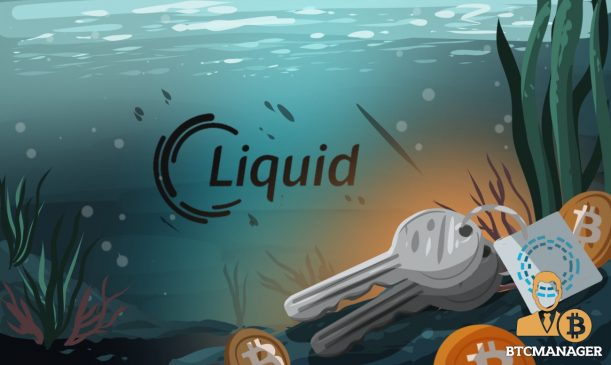This week, Blockstream launched the Liquid Network, a sidechain built on Strong Federation technology to facilitate quick and seamless transfer of bitcoin (BTC) between exchanges. Their website indicates they hold “emergency keys” to bitcoin held on Liquid, but there’s more to it. A Reddit thread offered both sides of the story; the anti Liquid and clarification from the top of Blockstream’s pecking order.
On Blockstream’s published FAQ for the Liquid Network, they state that there are emergency keys that can access bitcoin held on the network if the network is down for a prolonged period. The keys do not give them direct control over the holdings, but it does allow them to resend the locked coins to the last known owner on the Liquid chain.
This could potentially open Blockstream up to specific regulations as depending on how these keys work, and it may fall under the purview of a money transmission license, which has recently become a huge issue in the crypto community for companies operating in the USA. Holding emergency keys ultimately gives them access to the gross value on the network, and it wouldn’t be naive to think regulators will see this as a semi-custodial solution.
Adding to this, the network is a “federation,” and the Strong Federations whitepaper states it helps solve the speed and privacy issues on Bitcoin. Liquid is currently only allowing members to run a node and view the ledger, but they say in the future they will allow anyone to run a Liquid node.
Lightning Network Regulation and Clarification of Emergency Keys
Blockstream’s ex- CTO, Gregory Maxwell, offered some clarity on the situation in a Reddit thread.
A tweet from Adam Back, the CEO of Blockstream, shows him explaining the emergency keys are only active once the network has been inactive for 28 days. Furthermore, the funds are held in multisig wallets that require three different parties to sign off on to validate the emergency key function – for security reasons, Back did not name the three participants. Maxwell also cast doubt over whether the design is built the way Adam Back described it.
The Lighting Network is currently plagued by rumors that regulators are keeping a close eye on it due to its custodial nature. While funds are not directly held in custody, but instead locked in Hash Time Lock Contracts (HTLC), the use of an intermediary to transmit funds from one to another is the key feature bringing it to the attention of financial regulators.
While Liquid doesn’t seem to be in too much of a tussle, regulatory action has been wildly inconsistent with decision making, so grabbing regulatory attention definitely cannot be ruled out.
Like BTCMANAGER? Send us a tip!
Our Bitcoin Address: 3AbQrAyRsdM5NX5BQh8qWYePEpGjCYLCy4




